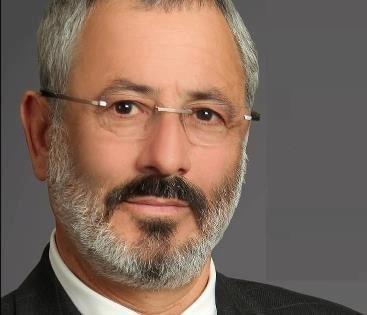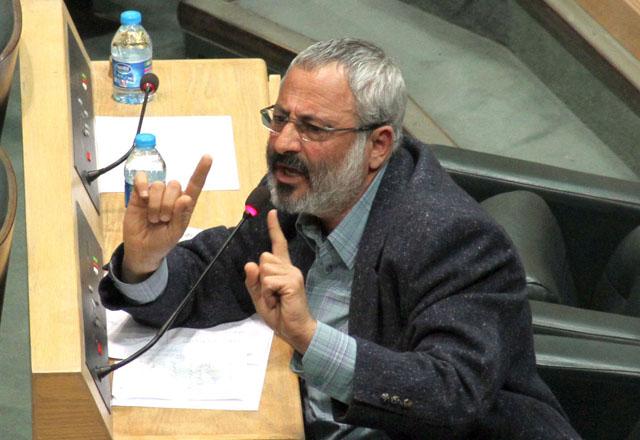AMMAN — The House-based Mubadara (initiative) is expected to evolve into a national platform after it overcame its first shock last week, when its leader MP Mustafa Hamarneh engaged in a confrontation with another lawmaker deemed a tribal icon last week.
The heated verbal exchanges between Hamarneh (Madaba, 1st District) and Deputy Abdul Karim Dughmi (Mafraq) and his supporters came on the backdrop of comments made by the former over tribalism. In recent remarks, the renowned scholar who advocates bold moves towards a civil state called for a political framework that engages all Jordanians; otherwise, tribes might evolve into “unarmed militias”.
His comments were taken as an attack on tribes, an interpretation that he dismissed, explaining that when he spoke on the issue, he was not attacking, nor defending, tribes, but speaking on the need to move towards establishing a civil state that involves all citizens.
Last week’s showdown was seen by observers as a shift in the status quo, pitting modernists against the old guard with established interests.
Mubadara will likely go through a “calmer” phase in the next weeks, analyst and Al Ghad daily columnist Fahed Kheitan told The Jordan Times on Saturday.
Mubadara needs to expand further by joining forces with other initiatives and active political groups, he said.
Kheitan cited the National Initiative for Building, better known as “Zamzam”, led by prominent Islamists and members of the Muslim Brotherhood movement as a potential ally of Mubadara, along with youth movements “who must be willing to support Mubadara’s tenets”.
Columnist at Ad Dustour Maher Abu Teir expected a similar scenario, noting that there are certain powers who do not want to cause any “internal disturbances” at this stage. Hence, he added, Mubadara will have space to develop further and mature.
The initiative has engaged with the government in efforts to find solutions to deep-rooted problems, including human rights and education.
The group, which has attracted over 20 members in the 150-strong House, has agreed with the government to grant husbands and children of Jordanian women married to non-Jordanians full civil rights. The move triggered criticism among tribal figures and other critics, who charged that it constitutes a prelude to settling Palestinian refugees permanently in Jordan.
Most recently, former Lower House speaker and veteran MP Saad Hayel Srour joined the group. He is expected to give Mubadara more weight on the political scene in the country.
Leading analysts agreed that with the emergence of Mubadara and its critics, the political scene is witnessing a transformation within the tribes in Jordan, as a new generation of tribesmen is trying to find its way up and replace the “old guard” who have been benefiting from their leading status in the tribes for decades.
Kheitan said tribal elites’ move against Mubadara is not because their concern is the tribal system or their fear that their tribes would lose ground to a new system. “They only want to protect their own interests.”
Mohammed Abu Rumman, a political analyst at the University of Jordan’s Centre for Strategic Studies, said the tribes have changed a lot and a new breed of leaders is evolving.
“There are now young tribesmen who are educated and have the potential to lead; therefore, they will inevitably compete with the old leaders,” said Abu Rumman, who also contributes a daily column to Al Ghad.
This new generation is open to Hamarneh’s ideas and has no problems with issues like civil rights, he added.
They also reject the “stereotype” about their roles as tribesmen, who are perceived by some as bandits manipulated by certain powers to prevent the state from taking steps to change the demographic map of the country.
This concern expressed by conservatives and others has come on the backdrop of ongoing efforts by US Secretary of State John Kerry to work out a framework peace deal between the Palestinians and the Israelis and impose it on all stakeholders.
Abu Rumman said Kerry’s leaked suggestions to resolve the issue of refugees “is a nightmare for East Bank Jordanians as well as Jordanians of Palestinian origin”.













